The manifold purpose of OCR is to “honor and appreciate the often-overlooked men and women who write quality music for a medium that is too frequently considered to be ‘disposable'”, to facilitate the expression, experimentation, and improvement of current and future ReMixers, and to provide free, quality music to anyone inclined to listen.
David (AKA djpretzel) was kind enough to take time from his busy schedule to discuss the site, game music in general, and the magic of melody with Hipster, please! Read on, and be afforded a glimpse at a gentleman who seeks not to preserve video game music solely for gamers, but to help garner game music and those who create it a genuine level of universal artistic appreciation.
-------------------------------------------
Despite the fact that you take great pains to prevent such misinterpretations, is there still lingering confusion concerning the traditional concept of a remix (referring to a more cosmetically altered form of an original work) versus that of a ReMix (which is generally much more comparable to an arrangement or full reinterpretation)? Do some people still not get it?
Some people still don't get it, but most do. All you have to hear is a single ReMix that's really been drastically rearranged for it to click: "oh, they're not just sampling the game music and adding beats - it's much more". It's a pretty unintuitive term, and the mixed capitalization doesn't really disambiguate it much, but it hasn't been too terribly problematic, either.
The primary tenet of the OverClocked ReMix project is focused on the fact that video game music is not disposable; that it is, in fact, art unto itself. Considering the fact that video games themselves are generally viewed as inherently inferior to the likes of literature and film, does the struggle for legitimate recognition of game music as art ever feel like an uphill battle?
Yes, but in a way it should be an uphill battle, and that's part of the appeal. It's taken a good long while for film composers to get the respect they deserve, and for people to realize that film scores can be decoupled and appreciated on their own - that there's enough depth there - so it makes sense that it's going to be a harder sell to get the same appreciation for games.
I think games are undergoing an important shift in public opinion right now, what with the Congressional attention in the United States and censorship elsewhere. There's an increasing divide between an older generation that's outraged at violence and sex because they have a limited view of games as being for children, versus a steadily growing demographic of adults now in their twenties and thirties that have grown up with games, who realize it's an artistic medium like any other and isn't limited to one demographic. As members of this second group age, move into the workplace (and elected offices), and have children of their own, I think we'll start witnessing a sea change of sorts, and that games will be elevated in the collective consciousness and appreciated alongside art, music, and film, not beneath them.
That's a long ways off, and while it certainly sounds both ideal and idealistic, it's probably more fun to be running a site like OCR right now, trying to shift opinions earlier on, fighting the uphill battle as you say; it's more fun bucking trends and public opinion than following them.
You make an excellent point about the aging of the video game generation. One needs only to look at the widespread modern acceptance of Rock ‘n Roll to see what happens when a youth-centered cultural touchstone matures with its fans.
Do you feel that recent high-profile projects such as Video Games Live and Play: A Video Game Symphony represent a breakthrough in a more mainstream acceptance of game music? Have you had an opportunity to attend any such events?
They represent a breakthrough of sorts, but I think the fans already existed, and were just waiting for events like these to come along; what they're really doing is finally capitalizing on a pretty significant demographic, giving it the respect it deserves, and putting on an amazing show as well.
I haven't yet attended Play, but I met up with Tommy Tallarico in Philly for Video Games Live. He's a great guy, very approachable, and as close to an "oracle" of video game music knowledge as exists on the planet. The concert was impressive, with both musical and interactive elements; I think I was the only person who let out a particularly hearty cheer when they played one of the themes from " Outrun ", but the audience was definitely into it as well. Plus, our official podcast VGDJ was given the chance to interview Tommy, Jack Wall ( Myst series), Michael Salvatori ( Halo & Halo 2 ), Gerard Marino ( God of War ), Martin Leung (the Video Game Pianist), and Marcus Henderson ( Guitar Hero ) - you can check the coverage on the website at www.vgdj.net - it's episode #43.
Would you say that ReMixes share a commonality with modern mash-ups/bastard pop , specifically with that genre's focus of the juxtaposition of unrelated works and styles?
 A limited commonality, yes. Mash-ups certainly have a similar spirit of repurposing to them, and certainly go beyond the traditional confines of normal remixing. I've heard some damn good ones, too. However, they're still limited in scope to using borrowed audio from the original pieces, lacking the flexibility that comes with rebuilding a song from scratch. I think mash-ups are more about finding interesting intersections between tracks, whereas ReMixes are more about finding totally new directions to take tracks in. I might be biased, but I also think the latter approach is more honorific of the pieces' original composers. That being said, there's some great stuff being done on the mash-up front, and I think we overlap with its ideology of juxtaposition and reuse.
A limited commonality, yes. Mash-ups certainly have a similar spirit of repurposing to them, and certainly go beyond the traditional confines of normal remixing. I've heard some damn good ones, too. However, they're still limited in scope to using borrowed audio from the original pieces, lacking the flexibility that comes with rebuilding a song from scratch. I think mash-ups are more about finding interesting intersections between tracks, whereas ReMixes are more about finding totally new directions to take tracks in. I might be biased, but I also think the latter approach is more honorific of the pieces' original composers. That being said, there's some great stuff being done on the mash-up front, and I think we overlap with its ideology of juxtaposition and reuse.
Likewise, do you see ReMixes as closely related to the current game rock movement? Does the manner in which bands like NESkimos and The Minibosses combine a reverence for the source material with self-expression and rock ‘n' roll showmanship echo the spirit of OCR?
Absolutely. A lot of the time, songs that game rock bands actually put out would constitute ReMixes. We've got three tracks from Game Over and a Minibosses mix on the site, amongst others. It's essentially a subset of ReMixing that's genre-specific, and places more emphasis on live performance. Sometimes there's not as much arrangement going on, and that's where the divergence seems to lie - there's often rock "covers" of game music that are essentially note-for-note, with instruments swapped out. But usually there's some degree of rewriting, often for percussive reasons or to throw in some guitar hero soloing or what not, and in those instances we're basically one and the same.
Game music is viewed much differently in Japan , with regard to popularity and accessibility. Would you prefer to see the West follow suit?
Yes, but in our own way, over time, and for the right reasons. I think it's almost inevitable, at some point, but I'd rather it be because the overall perspective on gaming has changed than because Jay-Z decided to record an exclusive track for the next Grand Theft Auto . Not that licensing and tie-ins aren't one sign of industry maturity, and not that I don't like Jay-Z, but I'd wanna see a deeper appreciation develop that was built up over time.
With regard to your own ReMixes , do you see yourself more as a songwriter, a musician, a producer, all of the above, or something totally different?
All of the above, but the closest thing to ReMixing in my mind should be songwriting; a good ReMix involves an arrangement that's expansive enough to incorporate a ReMixer's own compositional ideas, and that's at the very heart of what we're doing. Musicianship can be important, production is always key, but you can't get by at all without the compositional aspect, as it's what defines what we're about. This certainly holds true for me, but I'd hope that it also holds true for other mixers on the site.
Your arrangements espouse a deep understanding of song structure and an appreciation for a memorable melody (with “ ASSAULT ” and “ Hillbilly Rodeo ” both standing out as personal favorites). What is your level of traditional musical training?
Well, ironically (perhaps tellingly), I dropped out of Music Theory in high school; I couldn't handle the rigidity and mathematical approach to formal musical structure. I'd rather learn by doing, even if I get a lot of things wrong. I was, however, in school band for six years, playing the trumpet and later euphonium , so I learned all of the basics about scales, meter, how to sight-read , etc. and was exposed to a wide variety of musical genres both via band and my family and friends. I still prefer an intuitive approach to composition, and always will - it might limit my work in some ways, but it makes it a hundred times more fun to create, and I think that energy reinvests itself into the music. Different people work in different ways, and I'm definitely more on the intuitive, unstructured side of things when it comes to music.
Speaking of “different ways”: How do you approach your ReMixes? Do you focus on an element of the original track and see where it takes you, or do you have an idea in your head before you even begin the process?
Yes. In other words, depending on the mix, it varies. If I focus on a specific element, it's always going to be a melodic element; I've written entire mixes simply because there was a single, five-note passage at the end of a melodic phrase that I absolutely wanted to hear with the interval transposed up a third on two notes, or something similar. So often it's very, very specific, and keys off of a particular aspect of the source tune. Other times, it's more general - I had the idea for my Super Mario 64 ' SunkenSuite ' mix in my head for weeks before I finally laid it down, so most of it was already written, so to speak.
What is your production setup, and what gear and tech would you recommend for an artist who wants to delve into ReMixing?
I'm a Cubase SX user. The sequencer you use is the heart of your system, whether it be Cakewalk SONAR , Apple Logic , Pro Tools , Reason , or FruityLoops . Reason and FruityLoops offer beginners who are totally new to making music the best bang-for-the-buck, I think; FruityLoops in particular, as it can host other VSTi instruments and effects, of which many are freely available. All you really need for these tools is a soundcard with relatively low latency (the Audiophile 2496 is cheap & excellent - I've got two), and optionally a keyboard (I've got a Midiman Radium 49 and a Yamaha Motif 6 ). The keyboard can just be a straight MIDI controller, which are pretty cheap - it doesn't have to be a thousand dollar workstation with lots of bells and whistles (although those are *very* fun).
I say that a keyboard is optional because we've got several ReMixers that input everything using a mouse, and don't play anything live. I'm the exact opposite - even a really basic part like a kick drum or a snare, I'll input live, both for fun and for the natural variations to velocity, etc. this can lend. For about $400 you can get FruityLoops, an Audiophile 2496, and a decent MIDI controller, and that's a very potent setup that people have done amazing things with. I've accrued far more toys, from Gigastudio to Colossus to a range of Native Instruments softsynths, that I both use and love, but I'd like to think I could still make enjoyable music using a paired-down FL or Reason-based setup, and that's what I'd recommend to beginners.
I also use a Rode NT1 condenser mic for vocals, a Roland VM3100 mixer , M-Audio BX8 monitors , AKG K240 headphones, and for mastering I almost always run things through T-Racks , BBE Sonic Maximizer , and for any sort of editing, Sound Forge .
That's a lot of tech!
Not to compare apples to oranges, but do you generally prefer classic 8 and 16-bit gaming soundtracks to the modern emphasis on full orchestration? Did the limitations of the medium's early years serve more to hinder or to inspire?
I'm a very melody-centric person when it comes to music; I remember intervals, passages, etc., and if the tune's not there, not conspicuous and catchy to some degree, then I'm not feeling it. Because 16-bit and especially 8-bit consoles limited what composers could do from a production perspective, I feel like there was more emphasis placed on melody, and for me, that's a positive thing. It's not that redbook audio and modern production values aren't conducive to wonderful melodic composition - we've clearly seen massive evidence to the contrary. But the overall trend today I feel does weigh production and sounding "slick" over original melodic/harmonic components. There's tradeoffs either way, but most of my favorite game soundtracks are from the 16-bit era.
Are there, in your opinion, any gaming soundtracks that should be considered off limits to ReMixers? Are there any tracks that should be viewed as “hallowed ground,” or is everything fair game?
Nothing's off limits or sacrosanct. There are soundtracks that are far more challenging, but not because they're too revered, but because compositionally they're too intricate, abstract, or repetitive. It's not that we don't revere the best game soundtracks out there, though: ReMixing is our form of reverence.
What is your favorite classic gaming system from a musical standpoint and the standpoint of games and gameplay?
From the standpoint of music, though it pains me as a Sega man to say it, there's too strong an argument for the SNES to not give it the title. Games and gameplay, I'd lean more towards the Genesis - I was a huge fan of Revenge of Shinobi and the Phantasy Star series.
Are you still a gamer?
Yes, but not a very good one! Due to time constraints, these days I more often play racing games, fighting games, FPS, etc. as opposed to RPGs or action/adventure. F-Zero GX , UT2004 , and Street Fighter Alpha 3 would be the titles I'm most likely to pick up in my limited free time.
What is your take on the highly anticipated next-gen system wars?
Are the wars themselves anticipated, or just the systems? ;)
Touché! ;)
Honestly, I've never been too terribly interested in systems - I'm more interested in games. Microsoft's doing interesting things with XBOX Live that I think are changing the console scene, and I really do think the Wii's controller has the potential to bring a lot of people into the gaming fold and make gaming a more social experience. Sony , well... we'll see. The notion of system wars feeds fanboyism , forum spats, magazine sales, and probably increases the number of early adopters willing to shell out inane amounts of cash. I'm not entirely sure any of those things are necessary to the overall success of the industry. For this round, at least, I'm taking a wait-and-see attitude until all the players have layed down their chips, so to speak. I'll be happily playing my Dreamcast .
Ah, the noble Dreamcast!
As this site is dedicated to “nerd music and culture” I am compelled to ask you: Do you consider yourself a nerd?
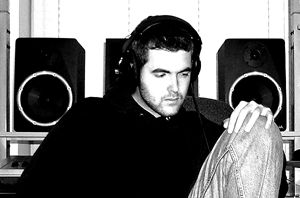 Maybe one fifth nerd. If people can claim that they're 1/18th Cherokee and what not, I should be able to claim that I'm 1/5th nerd. I can majorly geek out with the best of them on any number of nerd/geek topics like object-oriented programming, Star Trek / Wars , LOTR , etc., but I can also turn it off in a flash and have fairly "normal" conversations with "normal" people. What's normal, anyways? A wider demographic is becoming familiarized with computers than ever before, so technical proficiency with them is no longer a guarantor of nerddom. I'm an English major, and I'd usually much rather talk about fiction, or film, and of course music. OverClocked ReMix is an intersection of many interests, and while the phrase "video game remix" might make one think that it's dedicated solely to "nerd music and culture" as you say, I think the scope is often a bit wider. Nevertheless, that's still definitely a part of it, but I feel like we bridge nerd music and culture with other demographics, or at least try to.
Maybe one fifth nerd. If people can claim that they're 1/18th Cherokee and what not, I should be able to claim that I'm 1/5th nerd. I can majorly geek out with the best of them on any number of nerd/geek topics like object-oriented programming, Star Trek / Wars , LOTR , etc., but I can also turn it off in a flash and have fairly "normal" conversations with "normal" people. What's normal, anyways? A wider demographic is becoming familiarized with computers than ever before, so technical proficiency with them is no longer a guarantor of nerddom. I'm an English major, and I'd usually much rather talk about fiction, or film, and of course music. OverClocked ReMix is an intersection of many interests, and while the phrase "video game remix" might make one think that it's dedicated solely to "nerd music and culture" as you say, I think the scope is often a bit wider. Nevertheless, that's still definitely a part of it, but I feel like we bridge nerd music and culture with other demographics, or at least try to.
I completely agree. I know many people who'd scoff at the idea of downloading a nerdcore hip-hop album, but who'd feel perfectly comfortable rocking out to a Super Mario Bros ReMix . How do you account for that? I understand that nostalgia is a factor, but is there something more? How would you account for the resonant emotional impact of the so-called “bleeps and bloops” of classic gaming?
Well, to its credit, nerdcore is completely original, and that's part of why ReMixes might have a wider audience - there's a familiarity, associated with nostalgia, to the music. Plus, nerdcore is a single genre, and ReMixes are really less of a genre and more of a framework: there's nothing precluding, for example, a nerdcore ReMix . So some people might simply not be into hip-hop at all, vastly preferring jazz, and thus be down with some Zelda jazz from a group like Neskvartetten . Listening to a nerdcore or geeksta track, you'll know pretty soon who the main audience is, but you can play ReMixes for people in their seventies who've never touched a game system in their life, and while they won't recognize what they're hearing, they'll like it. It's not as intrinsically tied to a specific demographic or genre, and this gives it some breathing room. The emotional impact and nostalgia factor honestly don't HAVE to be there for people to appreciate ReMixes, from what I've seen. It can certainly help, but part of the point we're making about game music is that it's been unfairly pigeonholed, and that it usually resonates with gamers and non-gamers alike.
That's an excellent point. In that regard, people who have no connection to the game or the original composition really can appreciate the music simply for the art of it. But I digress.
Are there any classic ReMixes or freshly accepted submissions that you'd like to specifically recommend to those new to the world of OCR?
Recently, JigginJonT's F-Zero ReMixes have been excellent. I also collaborated with Geoffrey Taucer on a Chrono Trigger ReMix that's done in the style of folk singer/songwriters like Jim Croce , taking ReMixing in a VERY different direction. It was surprising to see how many listeners were positive, since this was a genre previously unavailable on the site, and one that I wouldn't think most gamers would be into; goes to show that assumptions and stereotypes can often be dead wrong.
More generally, ' The Ken Song ', ' Pillar of Salt ', and ' Kizukaseru ' are all required listening. That last one is from Last Blade 2 , one of the best and most-underplayed 2D SNK fighters ever made. There's dozens of tracks I could recommend, and these just scratch the surface; it's different for each listener, but almost everyone finds something they fall in love with in the overall collection.
In the past, you've estimated that only between 10 and 15% of OCR submissions are accepted. Are such approximations still fairly accurate?
Yes, that's still about right; probably closer to ten, though.
OCR was originally touted as a secondary work to your OverClocked web comic, but eventually overtook that project. Is the OverClocked comic still merely “slumbering”?
It's less of a slumber and more of a coma - it might come out of it, it might not. At the very least, I might clean the site up at some point, remove outdated/broken links, etc. Essentially, the emulation scene itself has waned somewhat in momentum over the last few years, I feel, due to a confluence of factors, and I don't think there's as much to make fun of anymore. Plus I'm pretty rusty on my 3D Studio MAX skills :)
Are you still as heavily interested in emulation as you were when OCR launched back in 1999?
No, I've really switched gears to game music to some extent, but since the two are related in my opinion, I definitely still make time to check the news sites, etc. The scene has slowed down somewhat over the years, to the point where there's a primary, mature emulator for most of the major consoles/computers I'd be interested in, and updates/releases/new emulators are much scarcer. It's still amazing to me the talent that these programmers possess - it far eclipses anything I do - and I still fire up ZSNES or MAME from time to time, but not with the same frequency as when OverClocked began.
-------------------------------------------
I've long been an admirer of OCR. I stop by periodically to check for ReMixes of some of my favorite classic console titles. Interestingly enough, djpretzel has been at the top of my “People I Really Need to Interview” list for a while now, but I simply didn't know how to approach him. Thankfully, ReMixer and nerdcore rapper/producer mythril nazgul (AKA myf) – whom I met through an unrelated project – was kind enough to put in a good word for me. That's the funny thing about music: It builds bridges. OverClocked ReMix is a prime example of this.
In a world of gamers vs. non-gamers, nerds vs. normals, Alliance vs. Horde , it's refreshing to find a group of individuals who genuinely want to spread the good word to music fans across the board. Modern music needs individuals like David and his cohorts from OCR; performers, producers, and songwriters with a fire and a passion to share their music with others, not to idly perpetuate a closed, exclusive community. And, in turn, OCR needs you. Whether you're a potential ReMixer, community member, or listener, the OverClocked ReMix project represents an opportunity to expand your horizons and explore new musical avenues.
Now, if you don't mind, I'm off to play some Trojan on my old NES. There's a melody in there I simply can't wait to get stuck in my head.




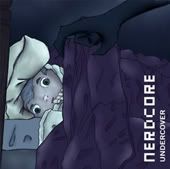
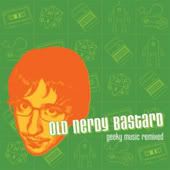
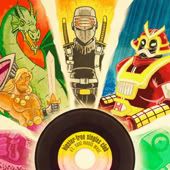
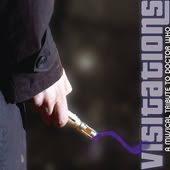
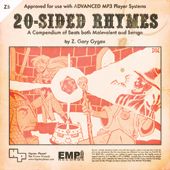
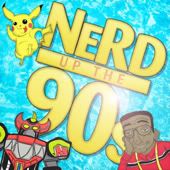







4 comments:
Great interview! DJ Pretzel and OCRemix is probably one of the biggest influences on music in my life. If i hadn't discovered OCRemix, i wouldn't have found, VG cover bands, then chiptunes, then nerdcore, and many many genres in between.
I got nothing but love for OCR. I am ceaselessly amazed at the quality of work coming from the project, and pretzel is a driving force behind that.
I've been a fan of OCremix for quite some time now... I guess I've just been a shallow fan, and didn't realize how extensive the passion is that goes into these songs I've got on my iPod.
It's great to hear how much someone like this enjoys what he's doing and his opinions on it's appeal and expansion-- definitely makes me appreciate it more.
Well said, Mammola!
Post a Comment